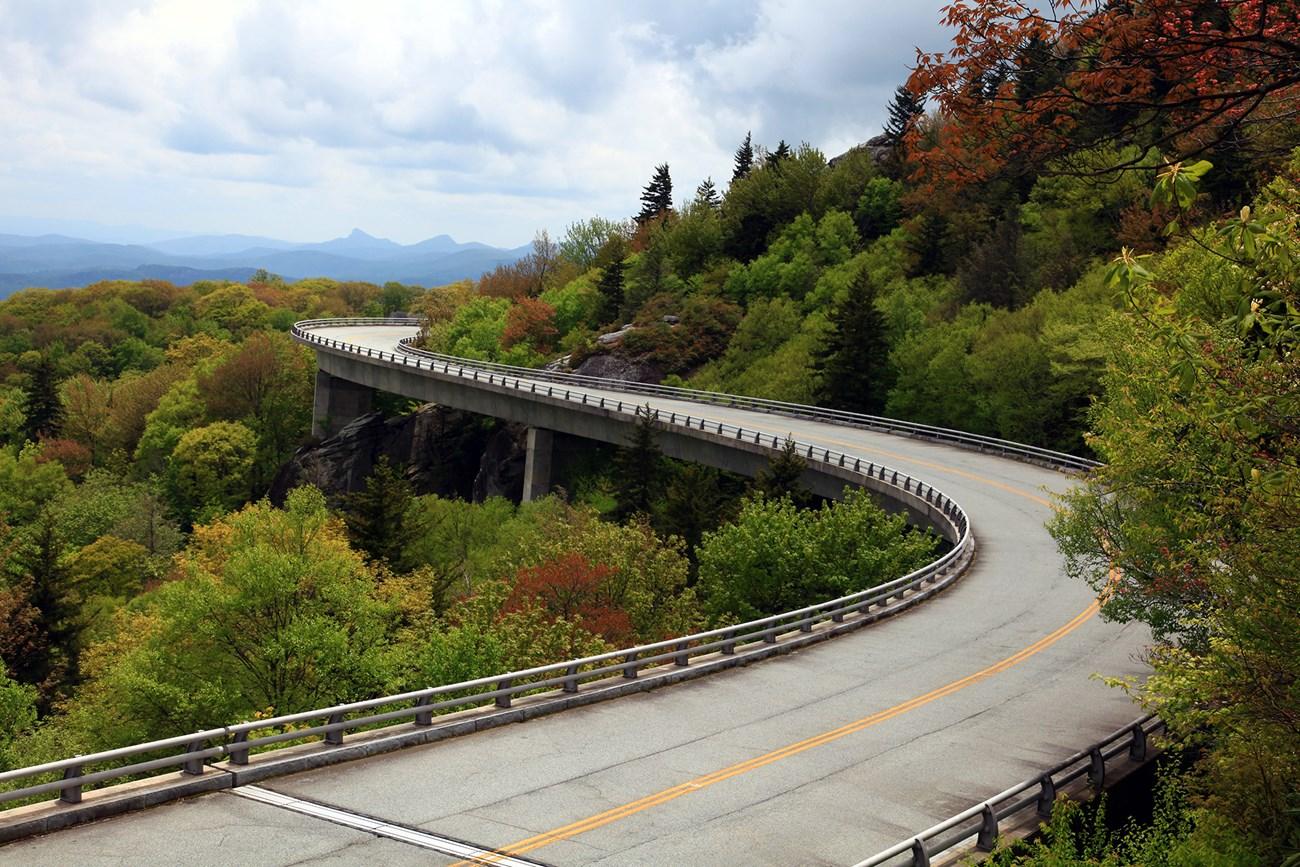
The Enchanting Asheville Area: A Jewel of the Blue Ridge Mountains
Nestled in the Blue Ridge Mountains, the Asheville Area in North Carolina is a haven for nature lovers and culture enthusiasts alike. The region is renowned for its vibrant arts scene, historic architecture, and breathtaking natural landscapes. Visitors can explore the Biltmore Estate, America's largest home, which boasts stunning gardens and a winery. The River Arts District is a must-see, where you can watch artists at work and even purchase unique pieces to take home. Outdoor adventurers will be thrilled with the myriad of hiking trails, waterfalls, and scenic drives. The Blue Ridge Parkway offers some of the most picturesque views in the country, especially during the fall when the foliage turns into a riot of colors. For those looking to relax, the area is dotted with charming bed and breakfasts, and wellness retreats that offer everything from yoga to hot springs. The local food scene is another highlight, with farm-to-table restaurants, craft breweries, and cozy cafes scattered throughout the city and surrounding areas. Whether you're sampling local cheeses at the farmer's market or enjoying a gourmet meal with a view, your taste buds are in for a treat. The Asheville Area is not just a destination; it's an experience that captivates the heart and soul.
Local tips in Asheville Area
- Visit the Biltmore Estate early in the morning to avoid crowds.
- Wear comfortable shoes for exploring the downtown area; it's very walkable.
- Check local listings for live music and events, as Asheville has a lively entertainment scene.
- Take a scenic drive on the Blue Ridge Parkway, especially during the fall foliage season.
- Visit the River Arts District on a weekday for a more relaxed experience.
The Enchanting Asheville Area: A Jewel of the Blue Ridge Mountains
Nestled in the Blue Ridge Mountains, the Asheville Area in North Carolina is a haven for nature lovers and culture enthusiasts alike. The region is renowned for its vibrant arts scene, historic architecture, and breathtaking natural landscapes. Visitors can explore the Biltmore Estate, America's largest home, which boasts stunning gardens and a winery. The River Arts District is a must-see, where you can watch artists at work and even purchase unique pieces to take home. Outdoor adventurers will be thrilled with the myriad of hiking trails, waterfalls, and scenic drives. The Blue Ridge Parkway offers some of the most picturesque views in the country, especially during the fall when the foliage turns into a riot of colors. For those looking to relax, the area is dotted with charming bed and breakfasts, and wellness retreats that offer everything from yoga to hot springs. The local food scene is another highlight, with farm-to-table restaurants, craft breweries, and cozy cafes scattered throughout the city and surrounding areas. Whether you're sampling local cheeses at the farmer's market or enjoying a gourmet meal with a view, your taste buds are in for a treat. The Asheville Area is not just a destination; it's an experience that captivates the heart and soul.
When is the best time to go to Asheville Area?
Iconic landmarks you can’t miss
Biltmore
Explore the stunning Biltmore Estate, America’s largest privately-owned home, nestled in the breathtaking Blue Ridge Mountains of Asheville, NC.
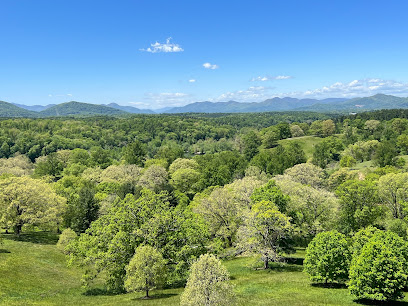
The North Carolina Arboretum
Discover the enchanting landscapes and rich biodiversity at The North Carolina Arboretum, a premier destination for nature enthusiasts in Asheville.
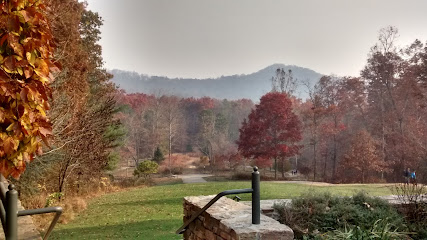
Pack Square Park
Discover the beauty and culture of Asheville at Pack Square Park, a vibrant urban oasis filled with history, art, and community spirit.
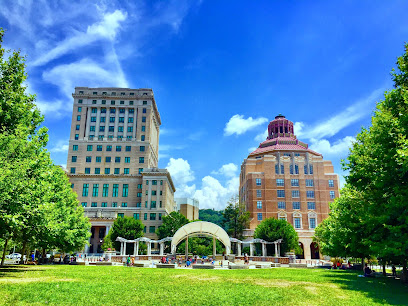
French Broad River Park
Explore the natural beauty and recreational opportunities at French Broad River Park in Asheville, a serene escape on the banks of the French Broad River.
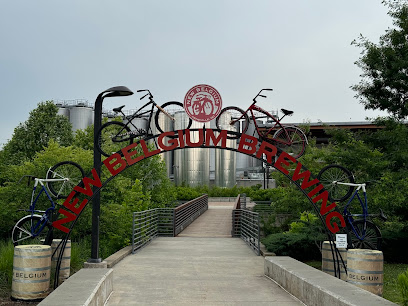
Grovewood Village
Explore the artistic charm and historical richness of Grovewood Village, a serene retreat in Asheville's picturesque landscape.
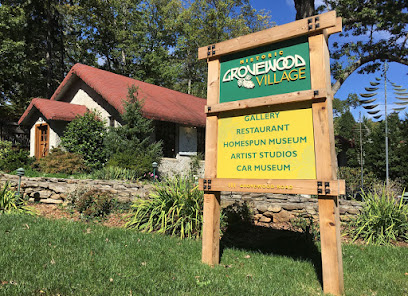
Asheville Ghost Tours: Oldest & Original
Explore the hauntingly beautiful history of Asheville on the original ghost tours, where chilling tales and eerie encounters await.
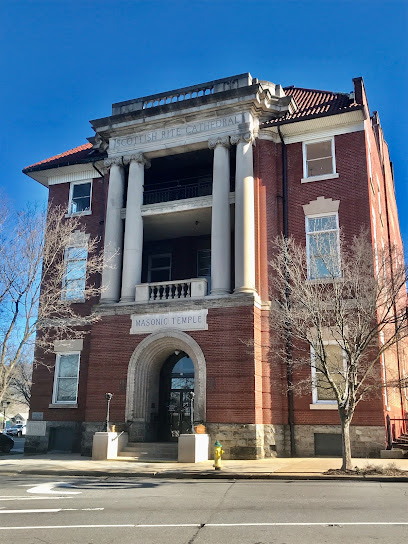
Thomas Wolfe Memorial State Historic Site
Explore the Thomas Wolfe Memorial State Historic Site and discover the literary heritage of Asheville, NC, through the life of renowned author Thomas Wolfe.
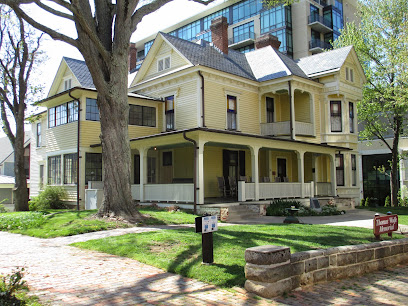
Blue Ridge National Heritage Area
Explore the stunning Blue Ridge National Heritage Area, where nature's beauty meets rich Appalachian culture and unforgettable outdoor adventures.
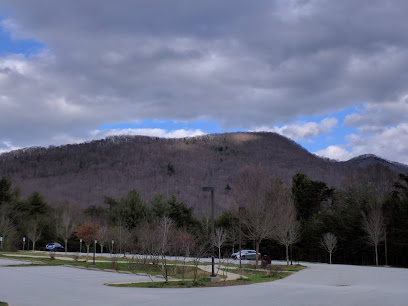
Asheville Museum of History
Explore the captivating heritage of Asheville at the Asheville Museum of History, where stories and artifacts reveal the city's vibrant past.

Chicken Alley Mural
Explore the vibrant Chicken Alley Mural in Downtown Asheville, a colorful testament to the city's artistic spirit and unique culture.
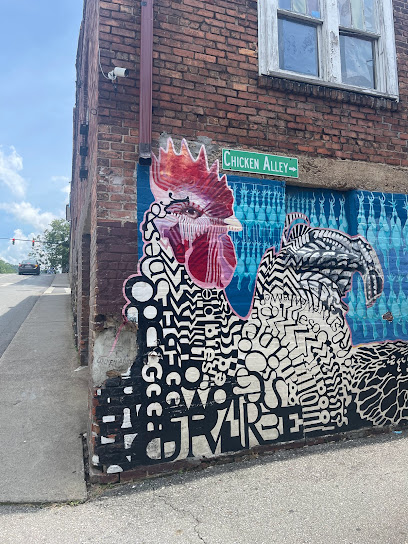
Zealandia's Bridge (Helen's Bridge)
Explore Zealandia's Bridge in Asheville, NC - a historical landmark rich in folklore and surrounded by stunning natural beauty.
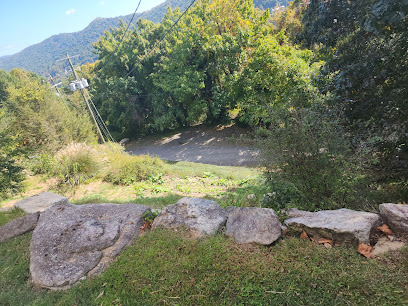
The Jackson Building
Discover the architectural beauty and historical significance of The Jackson Building, a must-see landmark in downtown Asheville, NC.
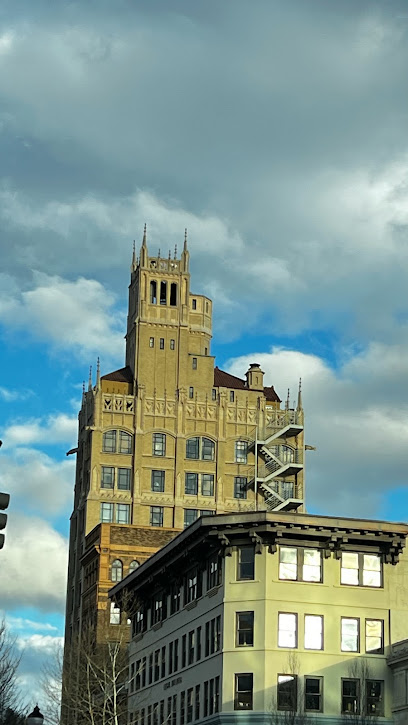
Sunset Terrace Historic District
Discover the historical elegance and architectural beauty of Sunset Terrace Historic District in Asheville, NC, a perfect blend of culture and nature.
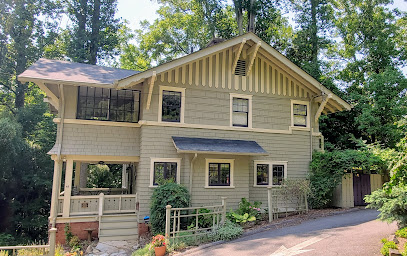
Riverside Industrial Historic District
Explore the Riverside Industrial Historic District in Asheville, NC, where history, architecture, and local culture beautifully intertwine for an unforgettable experience.
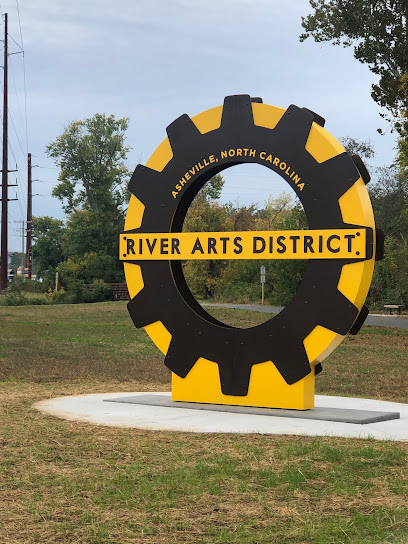
Battle of Asheville
Discover the Battle of Asheville, a key historical landmark in North Carolina, where history and nature meet in a beautiful setting.
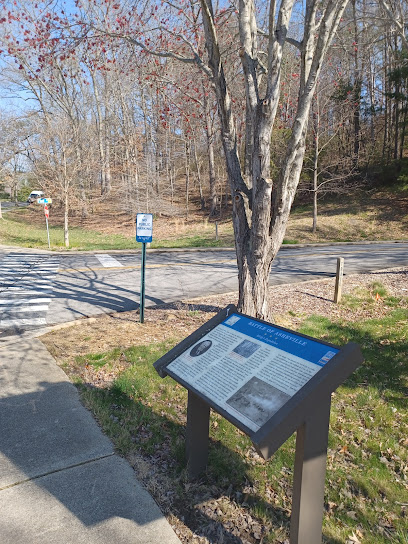
Unmissable attractions to see
Biltmore
Discover the grandeur of Biltmore Estate, America's largest privately-owned home, nestled in the stunning Blue Ridge Mountains of North Carolina.
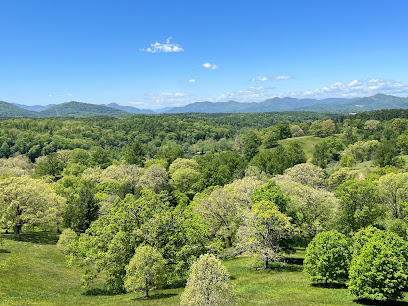
The North Carolina Arboretum
Explore The North Carolina Arboretum: A Botanical Wonderland in the Heart of the Blue Ridge Mountains.
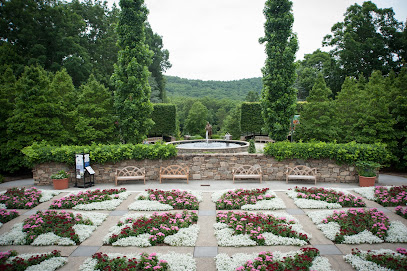
Western North Carolina Nature Center
Explore the rich biodiversity of the Southern Appalachians at the Western North Carolina Nature Center, a unique blend of park and zoo in Asheville.
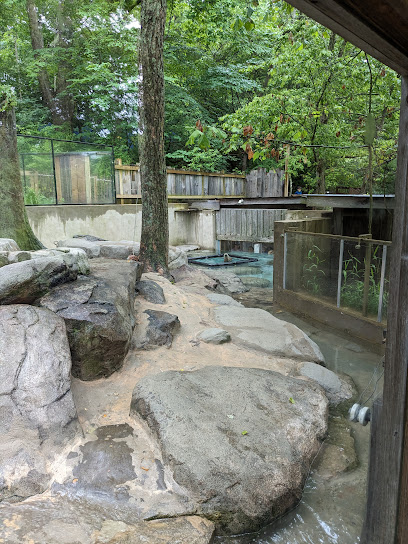
Asheville Pinball Museum
Experience the thrill of vintage gaming at Asheville Pinball Museum, where nostalgia meets interactive fun in a vibrant downtown setting.
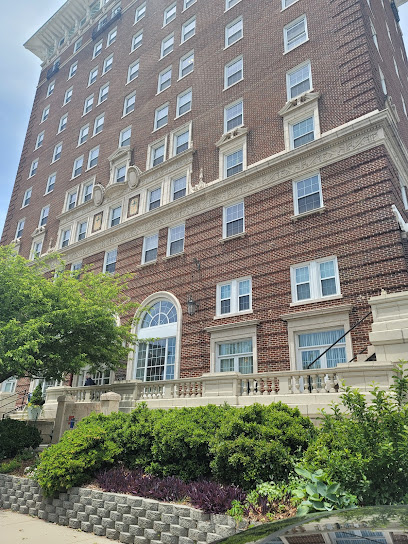
Sliding Rock
Discover the exhilarating natural water slide at Sliding Rock in Pisgah National Forest, a must-visit for adventure lovers and families alike.
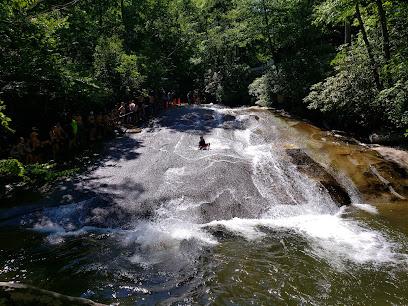
Carrier Park
Discover the serene beauty of Carrier Park in Asheville, NC - a perfect blend of nature, recreation, and scenic views of the Blue Ridge Mountains.
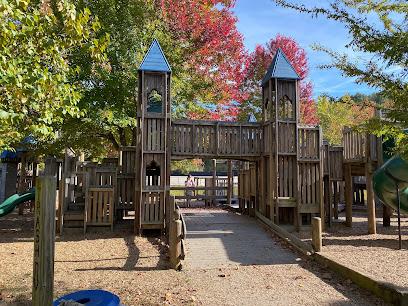
Asheville Botanical Garden
Discover the serene beauty and ecological diversity of Asheville Botanical Garden, a haven for plant lovers and nature enthusiasts in North Carolina.
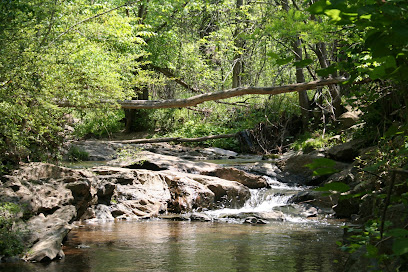
Carrier Park
Explore Carrier Park, Asheville's serene urban oasis offering scenic trails, sports facilities, and community events amidst stunning natural beauty.
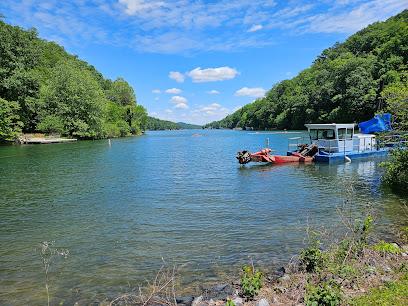
LaZoom Tours
Discover Asheville's vibrant culture and rich history with LaZoom Tours – a fun and engaging sightseeing experience for all ages.

Pack Square Park
Discover the charm of Pack Square Park, a lush urban oasis in Asheville, perfect for relaxation, community events, and stunning views.
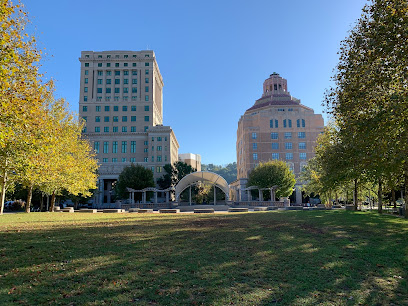
French Broad River Park
Experience the serene beauty of French Broad River Park, a peaceful retreat with stunning river views and recreational activities in Asheville, NC.
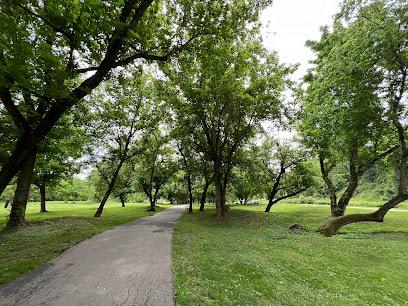
River Arts District
Explore the River Arts District in Asheville, NC, a vibrant community of artists, galleries, and stunning street art that captures the essence of creativity.
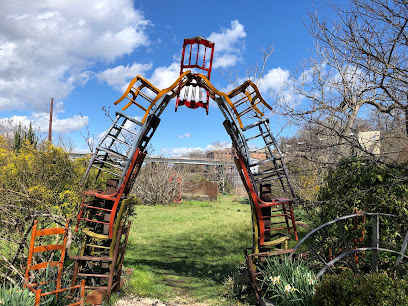
Elijah Mountain Gem Mine And Crystal Store
Explore Elijah Mountain Gem Mine, a gem-filled adventure for families and treasure hunters in Hendersonville, NC, where fun meets education!
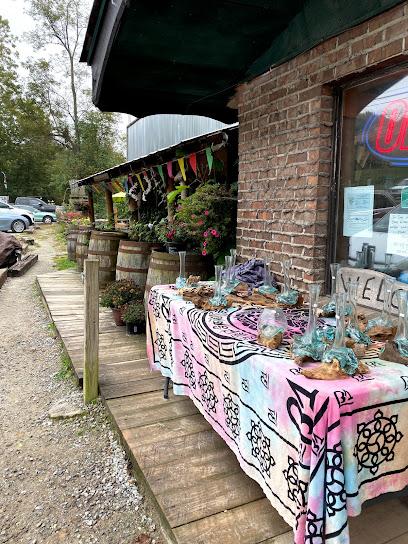
French Broad River Park
Experience the natural beauty and vibrant community atmosphere at French Broad River Park in Asheville, a perfect blend of recreation and relaxation.
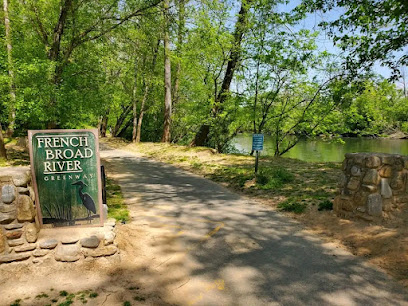
Basilica of Saint Lawrence, Deacon and Martyr
Explore the architectural wonder of the Basilica of Saint Lawrence in Asheville, NC, a serene place of worship and a captivating tourist destination.
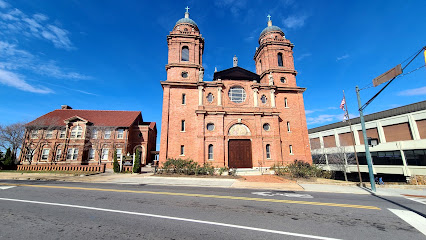
Essential places to dine
Moose Cafe
Experience the heart of Southern hospitality with delicious breakfast delights at Moose Cafe in Asheville.
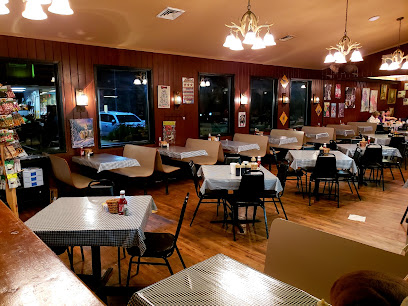
White Duck Taco Shop
Experience gourmet tacos with innovative flavors at White Duck Taco Shop in Asheville—an unmissable stop for food lovers.
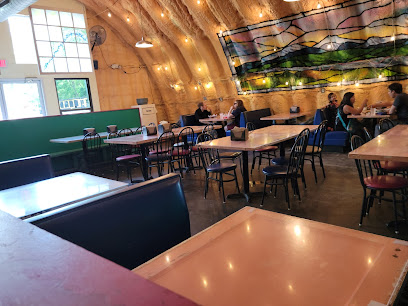
Pack's Tavern
Experience American cuisine with a local twist at Pack's Tavern in downtown Asheville – where delicious food meets vibrant nightlife.
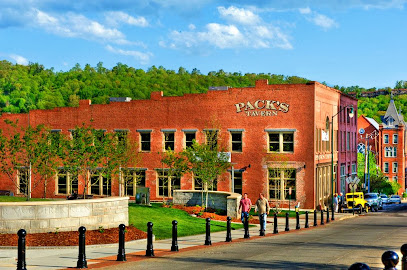
Chai Pani Asheville
Experience authentic Indian cuisine at Chai Pani Asheville – where vibrant flavors meet warm hospitality in every dish.
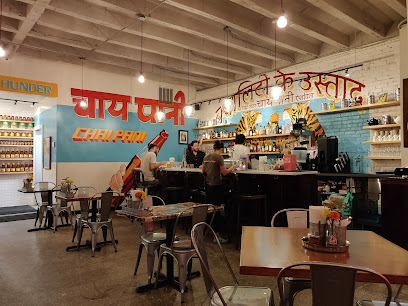
Tupelo Honey Southern Kitchen & Bar
Experience authentic Southern cuisine at Tupelo Honey Southern Kitchen & Bar in Asheville – where tradition meets modern dining.
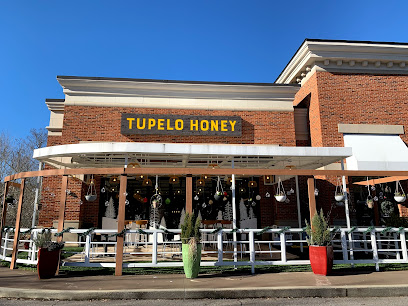
Early Girl Eatery
Experience authentic Southern cuisine at Early Girl Eatery in Asheville – where every meal is made with love using fresh local ingredients.
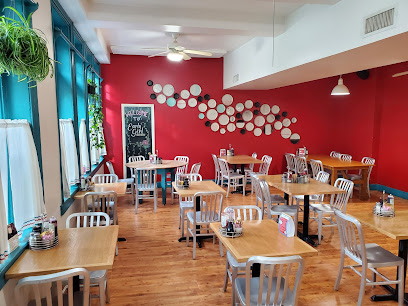
12 Bones Smokehouse RIVER
Experience authentic Southern barbecue at 12 Bones Smokehouse RIVER in Asheville's River Arts District - where flavor meets creativity.
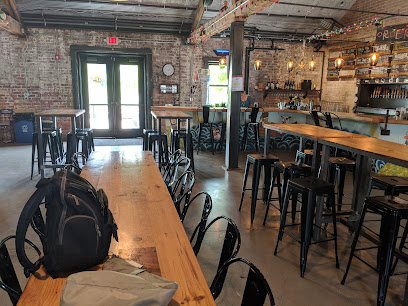
Corner Kitchen
Experience the best of American cuisine at Corner Kitchen in Biltmore Village - where flavor meets tradition in every dish.
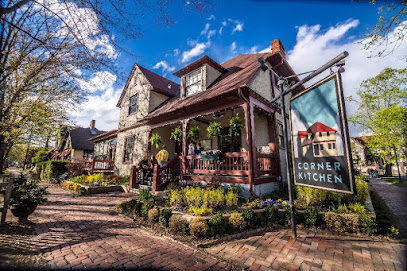
Jerusalem Garden Café
Discover authentic Mediterranean cuisine at Jerusalem Garden Café in Asheville – where every meal is infused with culture and flavor.
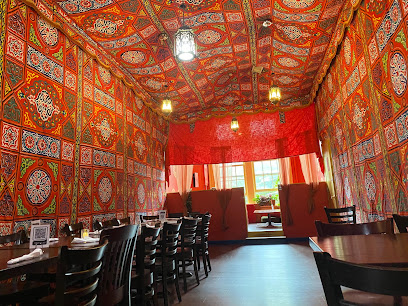
Nine Mile
Experience the vibrant taste of the Caribbean at Nine Mile in Asheville - where every dish tells a flavorful story.
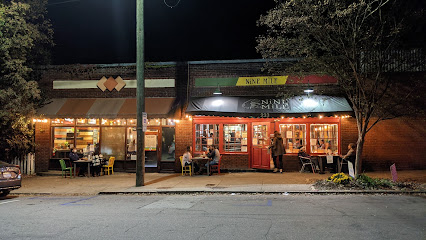
Twisted Laurel Downtown Asheville
Experience the vibrant flavors of American and Mediterranean cuisine at Twisted Laurel in Downtown Asheville - where every meal tells a story.
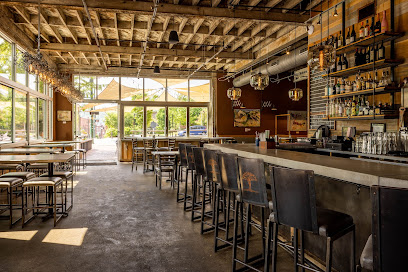
Bouchon
Experience authentic French cuisine at Bouchon in Asheville – where every dish tells a story and every visit is memorable.
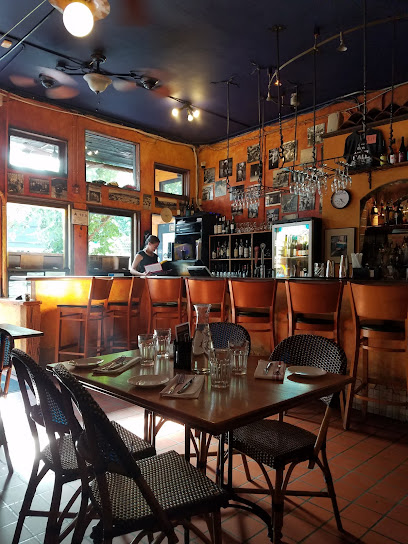
Zambra
Experience authentic Spanish tapas at Zambra in Asheville – where every dish tells a story.
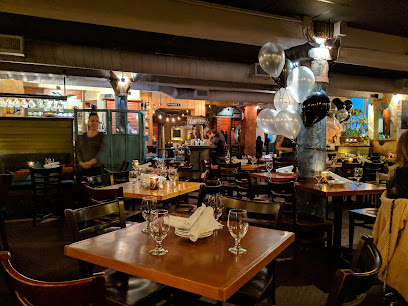
131 MAIN Restaurant
Experience exquisite American cuisine at 131 MAIN Restaurant in Asheville—where flavor meets fine dining in a charming atmosphere.
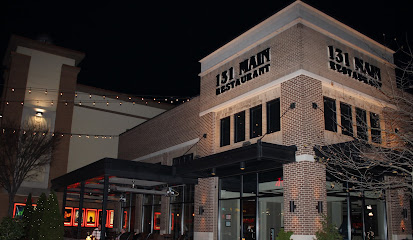
Posana Restaurant
Experience exquisite American cuisine at Posana Restaurant in Asheville - where every meal is crafted to perfection.
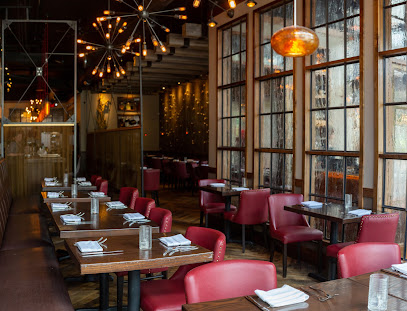
Markets, malls and hidden boutiques
Mast General Store Asheville
Explore the eclectic offerings of Mast General Store Asheville, where outdoor adventure meets nostalgic shopping in a charming downtown setting.
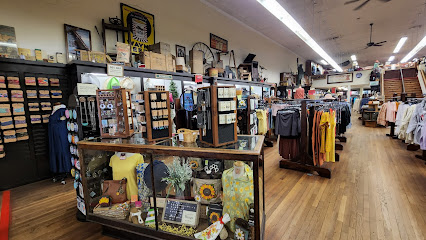
Antique Tobacco Barn
Discover unique antiques and vintage treasures at Antique Tobacco Barn in Asheville, a must-visit destination for history enthusiasts and treasure hunters.
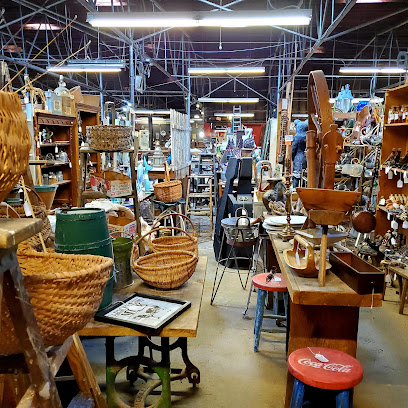
L.O.F.T. of Asheville
Discover unique gifts and local treasures at L.O.F.T. of Asheville, the perfect stop for souvenirs and books in the heart of Downtown Asheville.
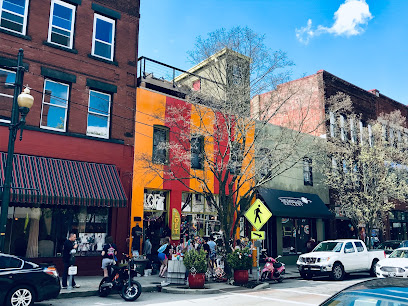
Sweeten Creek Antiques & Collectibles, LLC
Discover a treasure trove of antiques, collectibles, and vintage finds at Sweeten Creek Antiques & Collectibles in Asheville, North Carolina.
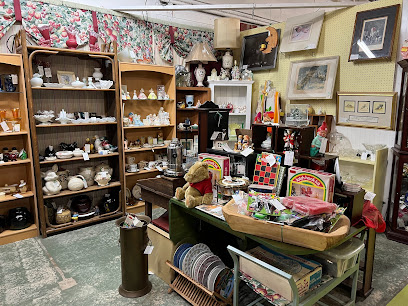
Asheville Raven and Crone
Explore the magical essence of Asheville at Raven and Crone, your go-to metaphysical store for books, herbs, and spiritual supplies.
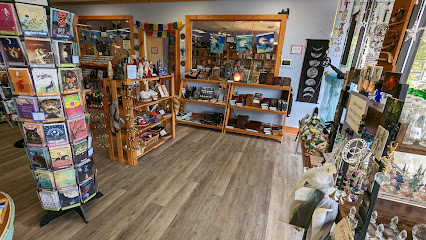
Asheville Emporium
Explore Asheville Emporium: A Cultural Hub for Unique Gifts and Local Art in Downtown Asheville, North Carolina.
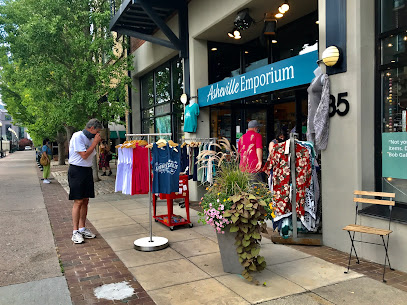
Instant Karma Asheville
Experience the eclectic charm of Instant Karma Asheville, where unique gifts, metaphysical supplies, and artistic treasures await every curious traveler.
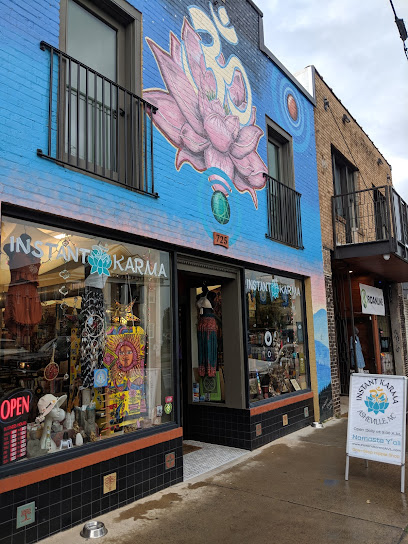
Gate House Gift Shop
Discover unique gifts and Biltmore Estate memorabilia at the Gate House Gift Shop, a charming stop in Asheville, North Carolina.
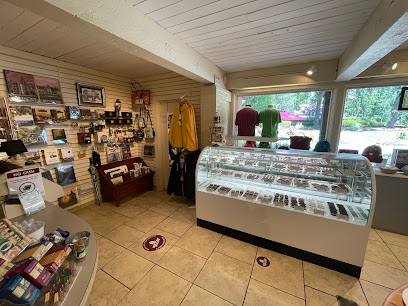
Honeypot Vintage
Explore unique vintage fashion treasures at Honeypot Vintage in Asheville, where timeless style meets sustainable shopping.
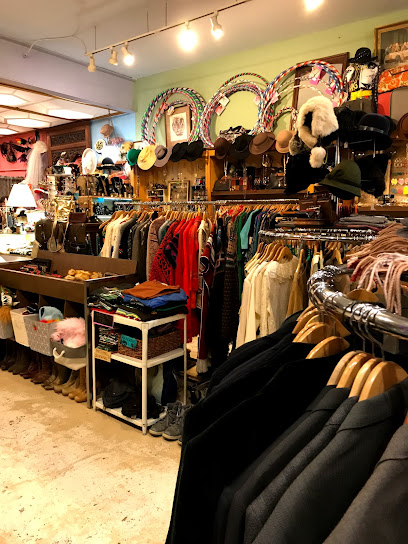
Spare Chayng
Explore Spare Chayng in Asheville for unique, ethically made gifts that celebrate local artistry and creativity.
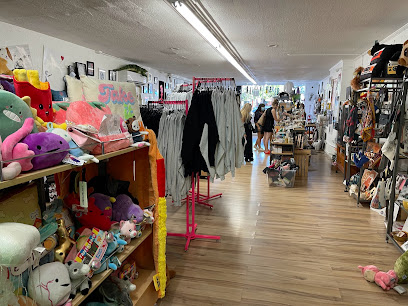
Ten Thousand Villages in Asheville
Explore Ten Thousand Villages in Asheville for unique, ethically sourced gifts and home goods that support global artisans and fair trade practices.
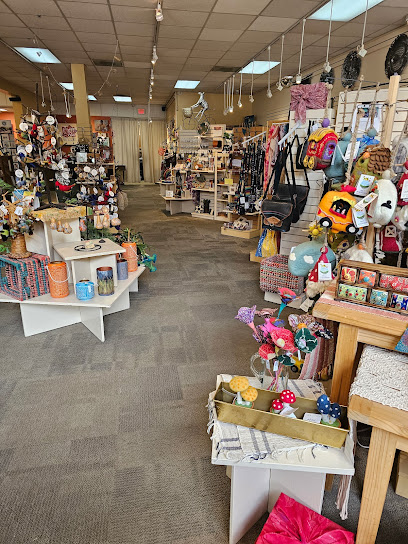
Moonlight Makers
Explore Moonlight Makers in Asheville for unique gifts, local artisan crafts, and memorable souvenirs that celebrate the spirit of the region.
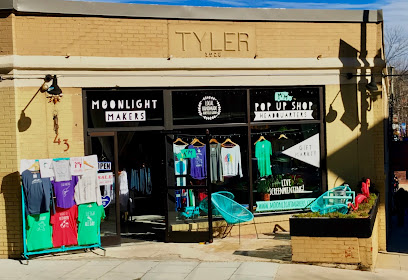
Indo Apparel & Gifts
Explore unique fashion and local gifts at Indo Apparel & Gifts, a charming clothing store in the heart of Asheville, North Carolina.
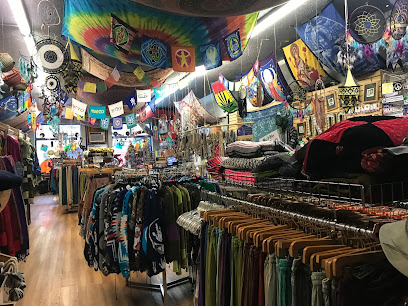
Appalachian Craft Center
Explore the heart of Appalachian artistry at the Craft Center, featuring unique handmade pottery, jewelry, and local artisan goods in Asheville, NC.
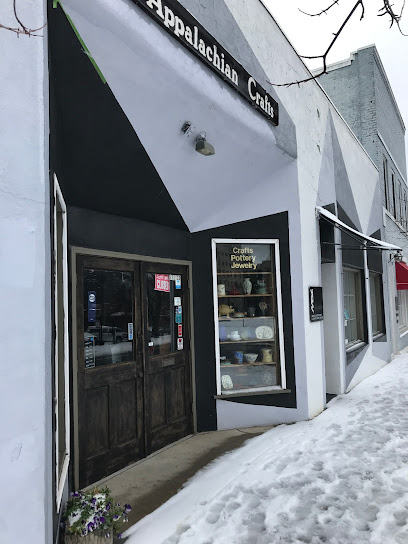
Duncan and York
Explore Duncan and York, a charming gift shop in Asheville, where unique local art and souvenirs await to make your visit unforgettable.
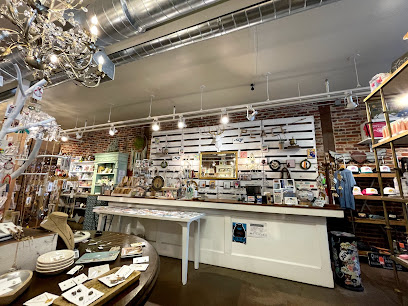
Essential bars & hidden hideouts
Off The Wagon Dueling Piano Bar Asheville
Join the musical fun at Off The Wagon Dueling Piano Bar in Asheville, where lively performances and vibrant crowds create unforgettable nights.
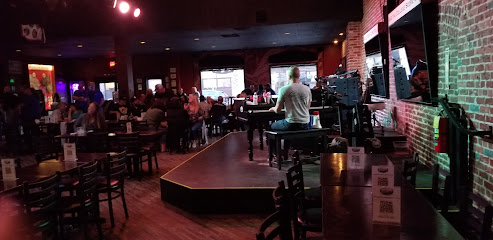
Jack of the Wood
Experience the heart of Asheville at Jack of the Wood, a lively Irish pub offering craft brews, delicious food, and live music in a welcoming atmosphere.
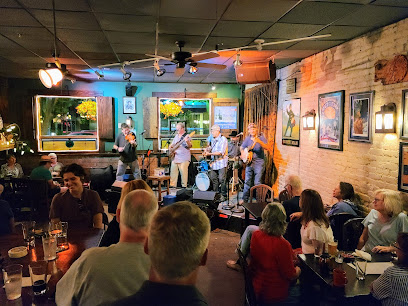
Foggy Mountain Brew Pub
Experience Asheville's vibrant craft beer culture at Foggy Mountain Brew Pub, where delicious food and local brews meet in a welcoming atmosphere.
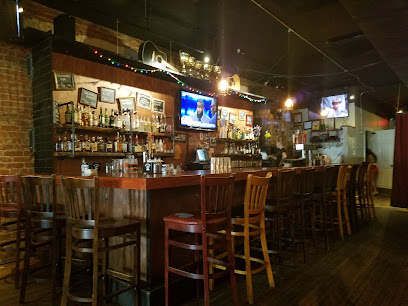
Westville Pub / All Sevens Brewing
Delve into the heart of Asheville at Westville Pub, where great food, local brews, and a lively atmosphere await you.
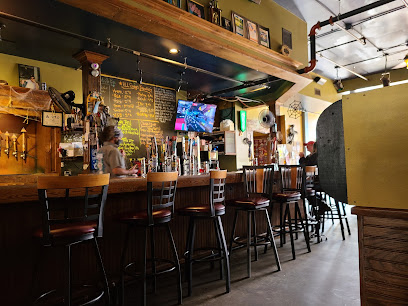
Rankin Vault Cocktail Lounge
Discover the enchanting atmosphere of Rankin Vault Cocktail Lounge, a historical bar in Asheville offering craft cocktails and delicious bites.
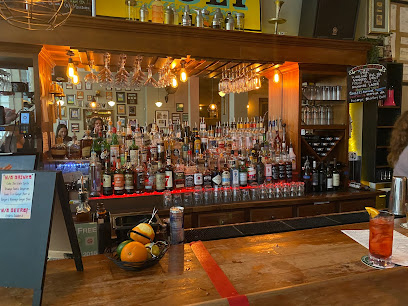
Sovereign Remedies
Discover the vibrant fusion of craft cocktails and American cuisine at Sovereign Remedies in the heart of Asheville.
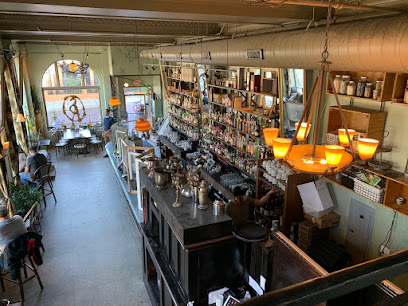
The Odd
Discover The Odd in Asheville: A unique bar and live music venue offering a vibrant atmosphere, delicious food, and unforgettable performances.
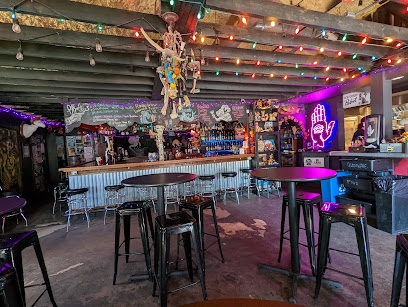
The Crow & Quill
Discover the vibrant atmosphere and creative cocktails at The Crow & Quill, Asheville's hidden gem for nightlife and socializing.
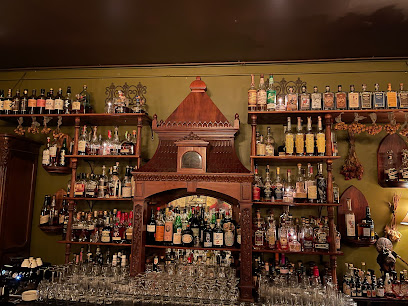
Storm Rhum Bar
Experience the vibrant atmosphere and exquisite flavors at Storm Rhum Bar, Asheville's premier destination for rum cocktails and New American cuisine.
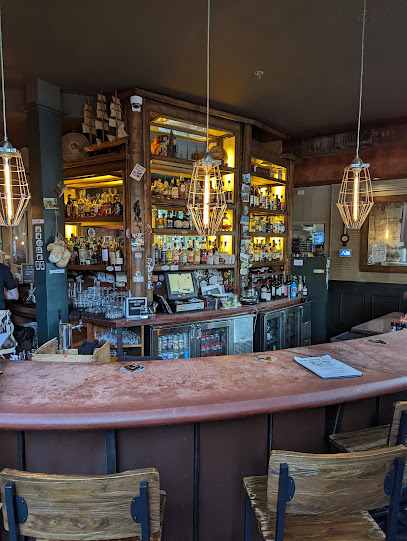
The Montford Rooftop Bar
Experience the best of Asheville at The Montford Rooftop Bar, where stunning views, handcrafted cocktails, and a vibrant atmosphere await.
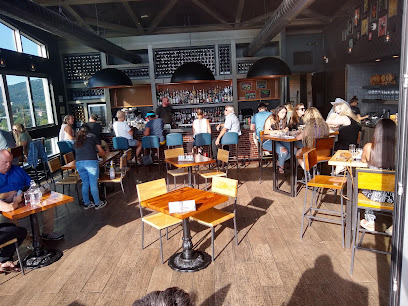
Antidote at Chemist Spirits
Discover a cocktail oasis in Asheville with innovative drinks and a lively atmosphere at Antidote at Chemist Spirits.
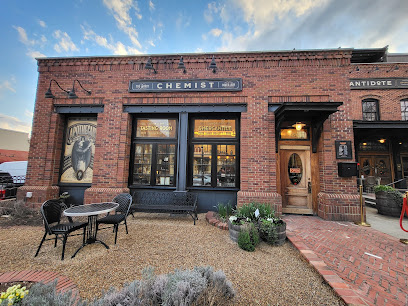
Pillar Rooftop Bar
Discover the breathtaking views and vibrant atmosphere at Asheville's Pillar Rooftop Bar, where expertly crafted cocktails await you.
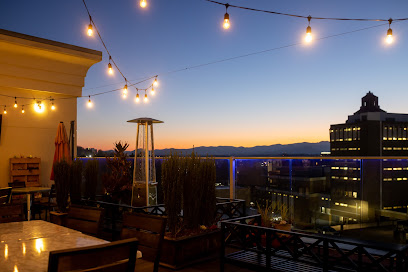
Asheville Yacht Club
Discover the Asheville Yacht Club, a vibrant bar and restaurant in downtown Asheville, offering delicious food, refreshing drinks, and a laid-back atmosphere.
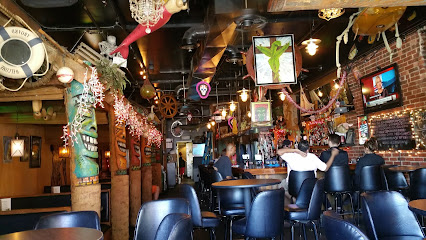
5 Walnut Wine Bar
Experience the vibrant charm of Asheville at 5 Walnut Wine Bar, where exquisite wines and a cozy atmosphere await every visitor.
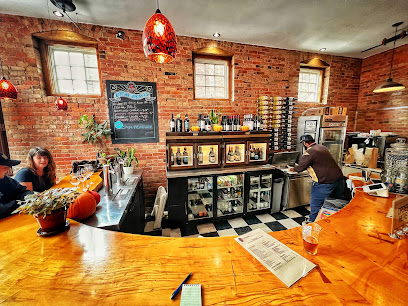
Local Phrases about Asheville Area
-
- HelloHowdy
[haw-dee] - GoodbyeSee ya
[see yuh] - YesYup
[yuhp] - NoNah
[nuh] - Please/You're welcomePlease/You're welcome
[please/yur welcome] - Thank youThank ya
[thank yuh] - Excuse me/SorryPardon me/Sorry
[pahrdn me/sawr-ee] - How are you?How ya doin'?
[how yuh doin] - Fine. And you?Fine. An' you?
[fahyn. an yuh] - Do you speak English?Ya speak English?
[yuh speak ing-glish] - I don't understandI ain't gettin' it
[I aint get-tin it]
- HelloHowdy
-
- I'd like to see the menu, pleaseLemme see the menu, please
[lem-mee see the menu please] - I don't eat meatI don't eat meat
[I dont eat meet] - Cheers!Cheers!
[cheers] - I would like to pay, pleaseI wanna pay now, please
[I wanna pay now please]
- I'd like to see the menu, pleaseLemme see the menu, please
-
- Help!Help!
[help] - Go away!Git outta here!
[git out-ta here] - Call the Police!Call the Cops!
[call the cops] - Call a doctor!Call a doc!
[call a doc] - I'm lostI'm lost
[I'm lost] - I'm illI'm feelin' bad
[I'm feelin bad]
- Help!Help!
-
- I'd like to buy...I'm fixin' to buy...
[I'm fixin' to buy] - I'm just lookingI'm just lookin'
[I'm just lookin] - How much is it?How much fer that?
[how much fur that] - That's too expensiveThat's too pricey
[that's too prahy-see] - Can you lower the price?Can ya bring it down?
[can yuh bring it down]
- I'd like to buy...I'm fixin' to buy...
-
- What time is it?What time is it?
[what time is it] - It's one o'clockIt's one o'clock
[It's one o'clock] - Half past (10)Half past ten
[half past ten] - MorningMornin'
[mornin] - AfternoonAfternoon
[afternoon] - EveningEvenin'
[evenin] - YesterdayYesterday
[yesterday] - TodayToday
[today] - TomorrowTomorrow
[tomorrow] - 1One
[wun] - 2Two
[too] - 3Three
[three] - 4Four
[four] - 5Five
[five] - 6Six
[six] - 7Seven
[seven] - 8Eight
[eight] - 9Nine
[nine] - 10Ten
[ten]
- What time is it?What time is it?
-
- Where's a/the...?Where's the...?
[where's the] - What's the address?What's the address?
[what's the address] - Can you show me (on the map)?Can ya show me (on the map)?
[can yuh show me on the map] - When's the next (bus)?When's the next (bus)?
[whens the next bus] - A ticket (to ....)A ticket (to ....)
[a ticket to]
- Where's a/the...?Where's the...?
History of Asheville Area
-
Long before European settlers arrived, the Asheville area was inhabited by the Cherokee people. The Cherokee Nation, known for their rich culture and advanced society, had established settlements along the French Broad River. The area was a hub of activity and trade for the Cherokee, who maintained a complex society with their own language, political system, and traditions. Visitors today can explore the remnants of this era at the Museum of the Cherokee Indian in nearby Cherokee, North Carolina.
-
Asheville was officially founded in 1797 and named after North Carolina Governor Samuel Ashe. The town quickly became a vital trading post, thanks to its strategic location at the confluence of the Swannanoa and French Broad Rivers. The community grew steadily, attracting settlers from various backgrounds who established farms, businesses, and churches. Asheville's picturesque setting in the Blue Ridge Mountains also made it a popular destination for those seeking the natural beauty and health benefits of the area.
-
During the Civil War, Asheville was a center of Confederate activity. The city served as a supply depot and hospital center for Confederate forces. Despite Union troops capturing Asheville in April 1865, the city escaped significant destruction. After the war, Asheville faced economic challenges but began to recover during the Reconstruction era. The construction of the Western North Carolina Railroad in the 1880s significantly boosted the local economy, connecting Asheville to larger markets and facilitating tourism.
-
The late 19th century saw Asheville transform into a playground for the wealthy. George Washington Vanderbilt II chose Asheville as the site for his grand Biltmore Estate, completed in 1895. Designed by architect Richard Morris Hunt and landscape architect Frederick Law Olmsted, the Biltmore Estate remains America's largest privately-owned home. The estate's opulence and the influx of wealthy visitors helped cement Asheville's reputation as a premier destination for luxury and leisure.
-
In the early 20th century, Asheville became a hub for the Arts and Crafts Movement, attracting artists, craftsmen, and architects who were drawn to the region's natural beauty and creative spirit. The Grove Park Inn, built in 1913 by Edwin Wiley Grove, became a center for this movement. The inn, with its distinctive stone architecture and fine craftsmanship, hosted many prominent figures of the era, including F. Scott Fitzgerald and Thomas Edison. Today, Asheville continues to be known for its vibrant arts scene, with numerous galleries, studios, and festivals celebrating the region's creative heritage.
-
Asheville was hit hard by the Great Depression, suffering one of the highest per capita debt levels in the nation. The city defaulted on its bonds in 1930, leading to a period of economic hardship. However, Asheville's residents displayed remarkable resilience and resourcefulness. The city's recovery was aided by New Deal programs, which funded infrastructure projects and provided jobs. The historic preservation of Asheville's downtown during this period also laid the groundwork for the city's future revitalization and growth.
-
In recent decades, Asheville has experienced a cultural renaissance, becoming a vibrant center for music, art, and culinary innovation. The city's historic architecture, stunning natural surroundings, and diverse community have attracted a new generation of residents and visitors. Asheville's commitment to sustainability, local entrepreneurship, and the arts has made it a model for other cities. The annual LEAF Festival and numerous music venues celebrate Asheville's rich musical heritage, while the burgeoning food scene showcases the region's agricultural bounty and creative culinary talent.
Asheville Area Essentials
-
Asheville is located in the western part of North Carolina, nestled in the Blue Ridge Mountains. The nearest major airport is Asheville Regional Airport (AVL), which is approximately 15 miles south of downtown Asheville. The airport offers direct flights from several major cities. If driving, Asheville is easily accessible via Interstate 40 and Interstate 26. Greyhound and Megabus also provide bus services to Asheville from various locations.
-
Asheville has a variety of transportation options to help you get around. The city's public bus system, operated by Asheville Rides Transit (ART), covers most areas of interest. Taxis and rideshare services like Uber and Lyft are readily available. For those who prefer to drive, car rental services are available at Asheville Regional Airport and in the city. Downtown Asheville is very walkable, and biking is also a popular option with several bike rental shops and bike-friendly paths.
-
The official currency is the United States Dollar (USD). Credit and debit cards are widely accepted in Asheville, including in restaurants, shops, and hotels. ATMs are plentiful, especially in downtown areas. It's advisable to carry some cash for small purchases, particularly at local markets and smaller establishments.
-
Asheville is generally a safe destination for tourists. However, like any city, it's important to stay vigilant. Avoid walking alone late at night in unfamiliar areas. The downtown area is usually bustling and safe, but be cautious in less populated areas. Some neighborhoods, such as parts of the River Arts District, can have higher crime rates, so exercise caution and be aware of your surroundings.
-
In case of emergency, dial 911 for immediate assistance. Asheville has several medical facilities, including Mission Hospital, which is a major medical center. Pharmacies are available throughout the city for minor health issues. It's advisable to have travel insurance that covers medical emergencies.
-
Fashion: Asheville has a laid-back, casual vibe, but some upscale restaurants and venues may require more formal attire. Dress in layers, as mountain weather can change quickly. Religion: Respect local customs and traditions, especially when visiting churches or religious sites. Public Transport: Be respectful to bus drivers and fellow passengers. Eating and drinking are generally not allowed on public transport. Greetings: A simple 'hello' or 'hi' is common. Handshakes are customary in formal settings. Eating & Drinking: Do try local craft beers and farm-to-table cuisine. Don't leave a bad tip; 15-20% is standard in restaurants.
-
To experience Asheville like a local, explore the River Arts District, where you can meet local artists and see their workspaces. Visit the local farmers' markets for fresh produce and handmade goods. Take a stroll through the historic Biltmore Village or hike on one of the many trails in the Blue Ridge Mountains. Don't miss out on the local breweries—Asheville is known for its vibrant craft beer scene.
Trending Landmarks in Asheville Area
-
Biltmore
-
The North Carolina Arboretum
-
Pack Square Park
-
French Broad River Park
-
Grovewood Village
-
Asheville Ghost Tours: Oldest & Original
-
Thomas Wolfe Memorial State Historic Site
-
Blue Ridge National Heritage Area
-
Asheville Museum of History
-
Chicken Alley Mural
-
Zealandia's Bridge (Helen's Bridge)
-
The Jackson Building
-
Sunset Terrace Historic District
-
Riverside Industrial Historic District
-
Battle of Asheville
Nearby Cities to Asheville Area
-
Things To Do in Greer
-
Things To Do in Johnson City
-
Things To Do in Greenville
-
Things To Do in Gatlinburg
-
Things To Do in Spartanburg
-
Things To Do in Pigeon Forge
-
Things To Do in Mauldin
-
Things To Do in Boone
-
Things To Do in Hickory
-
Things To Do in Anderson
-
Things To Do in Knoxville
-
Things To Do in Mooresville
-
Things To Do in Rock Hill
-
Things To Do in Fort Mill
-
Things To Do in Charlotte


